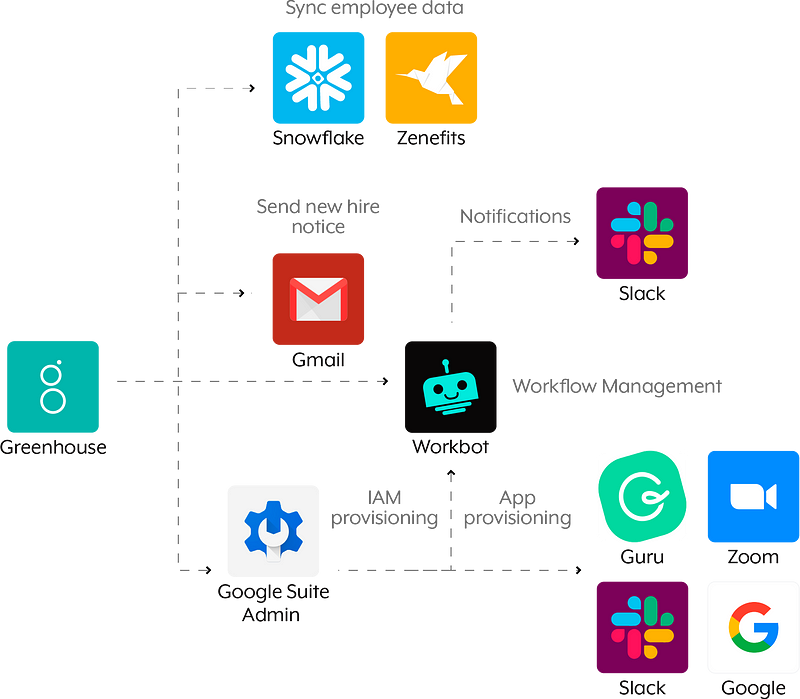# The Rise of B2B Super Apps: Key Unified APIs to Watch
Written on
Understanding B2B Super Apps
In the realm of B2B software, the concept of Super Apps is gaining traction, making it essential for entrepreneurs, investors, and tech enthusiasts to take note. To grasp this trend, we must first delve into the origins of Super Apps. The term was brought into the spotlight in 2018 by Connie Chan, a General Partner at Andreessen Horowitz and a former product leader.
According to Chan, “A Super App combines various seemingly unrelated services into one application.” This definition highlights the unique nature of consumer apps that support multiple functionalities by integrating various third-party services within a single platform—Alipay serves as a prime example. The efficiency of Super Apps lies in their ability to offer diverse functionalities through a singular API, a trend that has been particularly successful in China and is now being adopted globally.
Why B2B Super Apps Enhance Customer Experience
Super Apps are evolving beyond consumer technology; they are becoming instrumental in the B2B sector. Unified APIs are emerging as a standard in this space, designed for both simplicity and utility. With just a few lines of code, users can access multiple APIs almost instantaneously. This capability introduces a level of utility that many businesses have yet to fully explore.
The mantra “One API for all” encapsulates the core objective of B2B Super Apps. They aim to consolidate various APIs into a single access point. As described in the sources, “A Unified API merges multiple provider APIs into one, allowing you to connect to several services with minimal coding effort.” Unified APIs are crucial for several reasons:
- They streamline design and development processes by integrating multiple APIs into one.
- They provide businesses with more options when selecting SaaS solutions for their teams and clients.
- They enable faster scaling by allowing companies to concentrate on growth rather than on developing existing integrations, a significant advantage for early-stage startups with limited resources. This leads to quicker market entry and immediate value for end users.
- They facilitate automation across various services, helping to normalize data streams.
For instance, Workato exemplifies how automation can be applied in HR onboarding, integrating multiple third-party APIs to simplify a process that would normally be lengthy and complex.

Emerging B2B Super Apps and Unified APIs
As we look to the future, the rise of B2B Super Apps and the ubiquity of Unified APIs are trends that will only grow stronger. Here are seven noteworthy startups developing B2B Super Apps:
Alloy Automation | Stage: Series A | Backed by: Bain Capital Ventures, Y Combinator, and others.
Alloy serves as a no-code integration platform aimed at e-commerce professionals, allowing users to automate various processes through over 200 app integrations.
Merge | Stage: Series A | Backed by: New Enterprise Associates and others.
Merge offers a Unified API for various sectors including HR, payroll, and CRM, facilitating faster integration and allowing companies to focus on their core products.
Vezgo | Stage: Pre-Seed | Backed by: Unknown.
Vezgo simplifies crypto integration by providing a single API for multiple exchanges, making it easier for companies to develop financial and DeFi solutions.
Yappes | Stage: Seed | Backed by: Travel Startups Incubator.
Yappes enables teams to quickly publish and prototype APIs across various industries, offering a marketplace for diverse API integrations.
API2Cart | Stage: Unknown | Backed by: Unknown.
API2Cart acts as a unified interface for shopping cart data, streamlining commerce integrations and offering a white-label solution for businesses.
Foodetective | Stage: Seed | Backed by several investors.
Foodetective focuses on the food and beverage sector, offering a Unified API that helps restaurants manage their tech stack efficiently.
Paragon | Stage: Seed | Backed by notable venture capital firms.
Paragon specializes in custom integration building, allowing businesses to rapidly develop integrations across various categories, enhancing workflow efficiency.
Conclusion
The landscape of B2B Super Apps is becoming increasingly prominent, with Unified APIs playing a critical role. These apps not only provide a competitive edge through enhanced user experiences and rapid deployment but also address a wide array of business needs. Understanding the significance of Unified APIs will be essential for professionals and investors in the upcoming years, as these technologies evolve and adapt to different markets and customer segments.
Feel free to reach out if you'd like to discuss software, design, or early-stage investments!
—
By Manan Modi | Twitter | LinkedIn | Contact